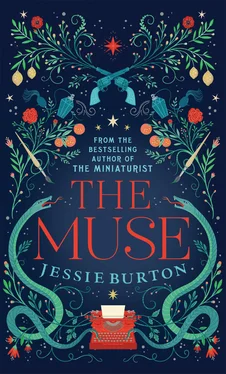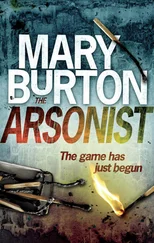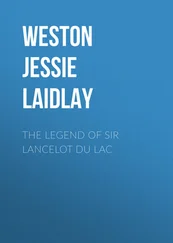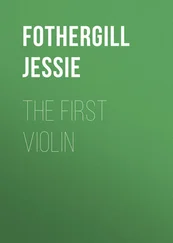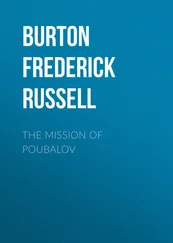There was a pause. ‘More,’ she said.
He ruched Olive’s skirt up around her waist, dropped to his knees and prised apart her thighs. When he ran his tongue down the fabric of her knickers, Olive gasped again. He stopped.
‘More?’ he asked. ‘Yes,’ she said, so he pushed the fabric aside and dipped in his tongue, dipping and lapping, opening his mouth onto her.
‘Is this a real thing?’ Olive whispered, and then her words were lost.
He carried on, and soon Olive was pushing her hips hard into him, her moans turning upwards into a huge sigh. She shuddered onto the table, her arms thrown back on the wide, gnarled wood. Isaac stood up and surveyed her, his hands holding the sides of Olive’s legs, how her arched spine now lay flat, how her face was turned away, closed to everything except her smile, her undeniable triumph and bliss.
‘More?’ Isaac asked.
Olive opened her eyes, widened her legs, and looked at him. ‘ More ,’ came her reply.
The first story I ever published in England appears on pages seventy-four to seventy-seven of the London Review of October 1967. It was called ‘The Toeless Woman’, and they even paid someone to draw an accompanying illustration. They missed the e off the end of my first name, so it looks like my father wrote it. I still have two copies of that particular edition — the one that I’d purchased myself, and the other I’d posted to my mother in Port of Spain, and which was returned to me years later, after her death.
My mother had annotated her copy with the words ‘ My girl! ’ and to my amusement, added the missing e in biro. Years later, at her funeral, my second cousin Louisa told me that Mrs Bastien had passed that Review round all her friends like a one-woman lending library, strictly insisting that they could only have an evening with it each. I think more people in Port of Spain read that story than in the literate sections of London town. What they made of it, I’ll never know.
It was Quick, of course, who was to blame — or thank — for the story finding its way to the editor. I think she relished the symmetry of it — how, after my leaving the raw thing on her desk, she was able to leave a copy of the magazine containing it on mine. I thought it was odd, how she had sat in her garden and exhorted me to disregard the opinions of others, only to go and submit my work for mass approval.
‘Find page seventy-four,’ she commanded, scratching aggressively at the base of her neck. I obeyed her, sitting in that viewless room in the Skelton, wishing she would go away, so that I could be in private to study this vision of my almost-name on the page. But Quick did not leave, and I had to hold in the tsunami of sound I wanted to unleash across the square, a cry of satisfaction so loud it would have travelled over the rooftops to the coast of Kent. My father’s name, Odell Bastien , his daughter’s writing underneath. Next time, I swore there would be no missing e . But for now, it would do. The words, at least, were mine.
Quick smiled, and the effect on her gaunt face was transformative: gleeful, youthful, briefly illuminated with pleasure. She was dressed that day in a dark-green pair of trousers, slightly flared, and a pussy-bow silk blouse with a seasonal repeating pattern of brown leaves. I noticed the slight sag of the material on her thighs; she was definitely thinner. ‘It was an excellent story,’ she said, ‘so I sent it in. I even got you a fee. Thirty pounds.’
‘Thirty pounds ?’
‘I hope that was all right. You don’t mind I went ahead?’
‘I don’t know how to thank you. Thank you.’
She laughed, sitting down opposite me, fumbling in her trouser pocket, lighting a cigarette and taking a deep drag. ‘Don’t thank me,’ she said. ‘It was a fantastic read. Did you base it on something that happened at Dolcis?’
‘Sort of.’
She gazed at me. ‘How does it feel, to be a published writer?’
I looked back down at the page; the ink that couldn’t be rubbed away, the deceptive permanence of the paper. I felt exalted, my mind a cathedral, with an actual congregation who wished to visit my altar. ‘Incredible,’ I said.
‘You’d better write some more,’ she replied. ‘Keep going at it. It seems to work.’
‘I will. Thank you, thank you again.’
She went to the window, cigarette in hand, and looked down at the alley where the smokers gathered. I couldn’t imagine her mixing with them, a bird of paradise amongst the canaries. ‘Would you have let me look at it,’ she asked, ‘if you’d known what I might do?’
‘I don’t know,’ I said. It was a good question.
‘I wondered. Anyway, you’ve got a terrible view here. Did Pamela choose this room? We can get you a nicer one.’
‘I’m fine, thank you. A nice view would probably distract me from my work.’
She raised an eyebrow. ‘How puritanical.’
Quick could tease me as much as she wanted; I didn’t care. I was published. She remained at the window, her back to me again. ‘How about Reede’s news on Mr Scott’s painting, eh? He’s looking very pleased with himself. Looks like we are going to have an exhibition. He wants to call it “The Swallowed Century”. But we cannot exhibit only one painting.’ I could hear the disdain in her voice. Her body was slightly curled over, as if she was shielding a ball of pain.
‘I didn’t know,’ I said.
She turned. ‘No? Is everything all right between you and Mr Scott?’
‘Yes. No. Just a misunderstanding.’
‘I see.’ She straightened up, leaning against the wall. ‘Want to talk about it?’
‘There’s nothing much to say.’ Quick fixed her gaze on me, so reluctantly, I went on. ‘I went to his mother’s house, in Surrey.’
‘Nice?’
‘Nice. We had dinner. And then afterwards, he told me he loved me. And I didn’t say it back. And it all went wrong from there. I haven’t spoken to him for three weeks.’
Quick inhaled thoughtfully on her cigarette. ‘No harm done. I saw the way he looked at you. You’ve got him in the palm of your hand.’
‘I don’t think so. I wasn’t very polite.’
‘Odelle, you don’t have to say, or do, anything you don’t want to. I don’t suppose he loves you for your politeness.’
‘But he hasn’t called. I haven’t seen him.’
‘Does that bother you?’
I was astonished at the tears pricking my eyes. ‘Yes.’
‘Then it’ll work itself out. Don’t go flailing back in. Never helps, in my experience. Did you stay long in the house?’
‘A few hours.’
‘Big place?’
‘Fairly. I didn’t see much.’
I considered telling Quick about the pamphlet I’d smuggled out in my handbag, but something stopped me. Maybe it was my reluctance to look like a thief, but there was also something about the way Quick constantly hovered over the issue of Lawrie and the painting that made me wary. Given her attitude towards Lawrie, she might jump on anything to use against him — although what a long-forgotten pamphlet might mean in all this was anyone’s guess. Lawrie and I may not have been quite on speaking terms, but I didn’t want Quick to make him even more defenceless in the face of any attack.
‘Come and have dinner with me tonight,’ she said. ‘Let’s have champagne.’
‘Champagne?’
‘I’m feeling victorious. I’ve got a couple of lamb chops that need eating. And someone needs to give you a pat on the back.’
I hesitated. Being alone with Marjorie Quick was always a very intense experience, and after the last time in her garden, I didn’t know if I was up to it. But then I thought about another night in the empty flat, with only the crackle of the radio and my overly read books for company, and suddenly I didn’t want to be alone. ‘Thank you,’ I said. ‘Shall we ask Pamela?’
Читать дальше
